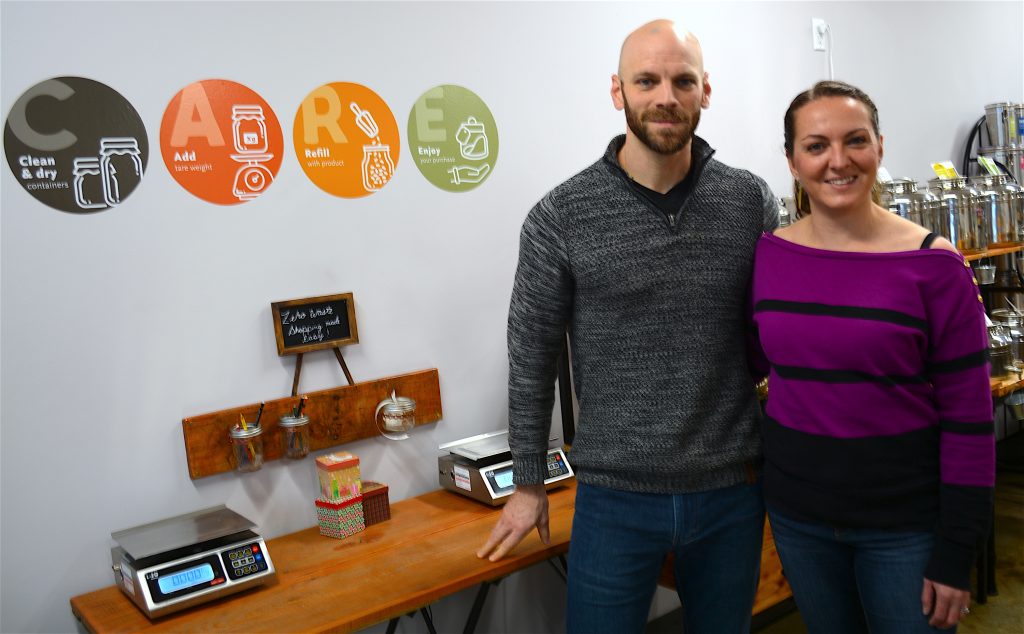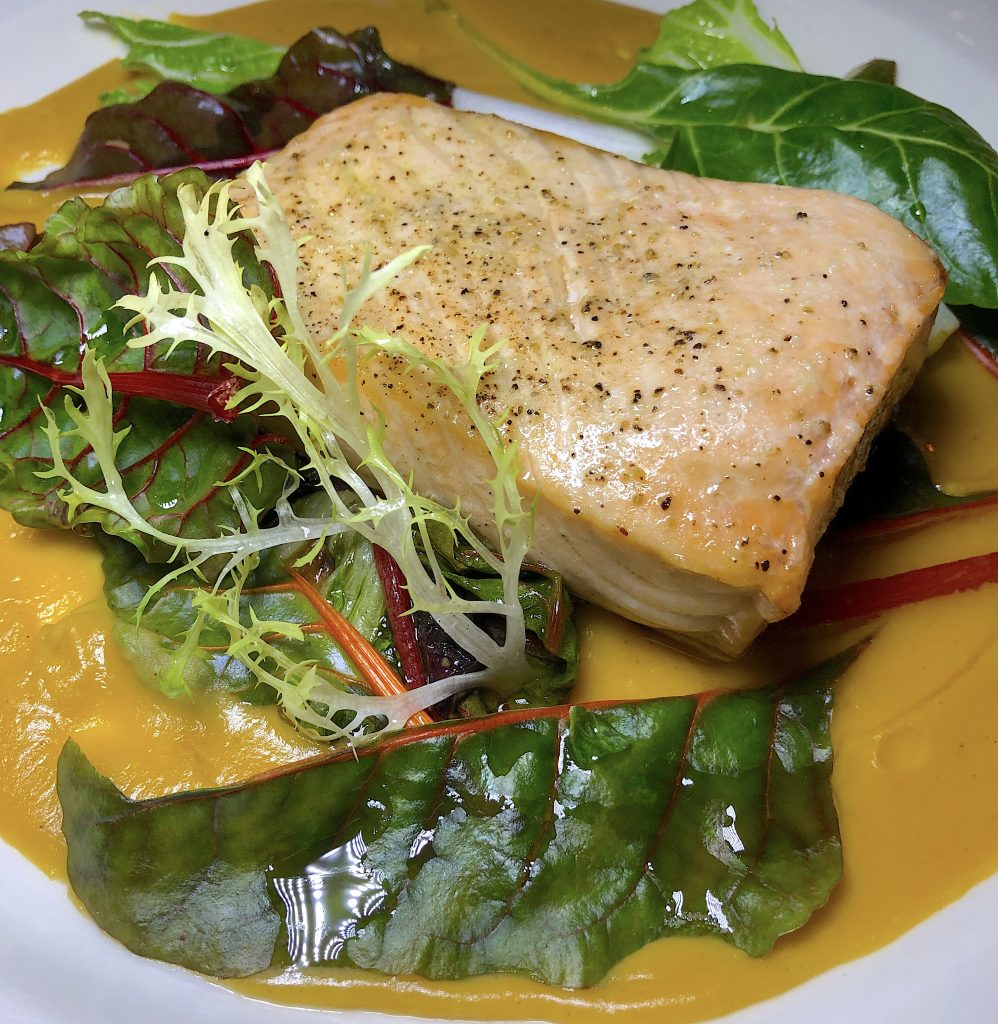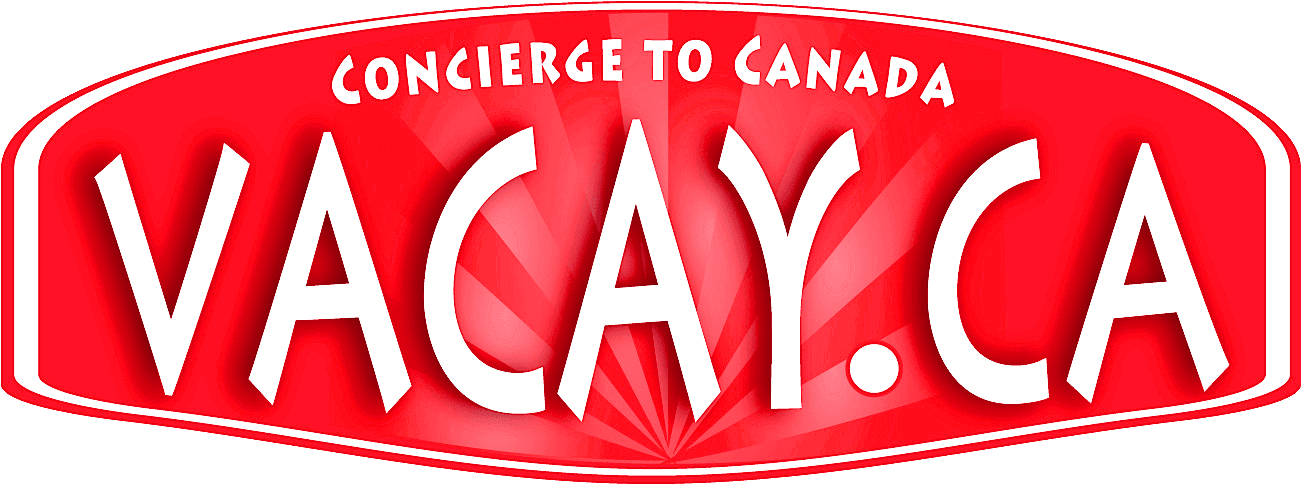
Finlayson Arm cuts between the Malahat highlands in a pristine area that’s part of the Greater Victoria Tourism region. (Adrian Brijbassi/Vacay.ca)
“The IMPACT Conference will be my legacy here,” says Paul Nursey, CEO of Destination Greater Victoria. Nursey spearheaded the launch of the annual conference to spark environmentally focused initiatives in his region and across Canada. The fact Victoria is home to such a gathering seems fitting, given that Vancouver Island has for years been at the forefront of environmental movements, as well as the base of the national Green Party.
Starting the conference was daunting, Nursey points out. But it has gained notoriety as it prepares for its third edition from January 20-22. While Nursey and stakeholders in the industry, ranging from different levels of government to Indigenous leaders and corporate executives, focus on policy and strategy, entrepreneurs are creating new options for locals and visitors to shop and eat. Grassroots efforts include Vancouver Island’s only zero-waste grocery store and Canada’s first carbon-neutral fast-food restaurant, Big Wheel Burger.
“There are a lot of people who think that buying products that are good for the environment is only for the privileged. We wanted to smash that stereotype,” says Nairn McPhee, a retired Navy officer who launched Zero Waste Emporium with his wife, Paula, a marine biologist.

Nairn and Paula McPhee opened the Zero Waste Emporium in part to help empower consumers who want to make a difference for the planet but may feel helpless to do so because of a lack of choice. (Adrian Brijbassi photo for Vacay.ca)
During their respective careers exploring the waters of British Columbia and beyond, the McPhees witnessed the damage to the oceans of plastics and wasteful practices. The evidence of pollution and climate damage sparked them to introduce their business to the Victoria community. The Zero Waste Emporium opened in 2016 following its owners’ success at local farmers’ markets.
“Having kids puts into perspective for us that we wanted to help rather than hinder the process,” says Nairn McPhee during an interview at Zero Waste Emporium. “We began realizing if we don’t make change now we won’t have the world we live in for our three kids.”
The store next levels the shopping experience for food and kitchen goods. It is the size of your typical neighbourhood convenience store but its shelves are carefully curated with 1,200 smartly sourced products. Shoppers not only bring in their own bags but their own containers to refill olive oil, shampoo, spices, potato chips, and pretty much every household staple that comes to mind. Short-term visitors to the city who rent Airbnb or other homestay units particularly benefit from the bulk purchases because they can buy just a teaspoon of a spice or only the amount of a condiment they need.
“It’s about $2 cheaper to buy refill ketchup when you bring in your own container over purchasing a new bottle in the store,” Paula McPhee says. “The packaging has a cost and when you eliminate that cost consumers really begin to see how much weight from a packaged product they actually consume. It’s eye-opening for a lot of people.”

One aim of Victoria’s environmental programs is to protect Vancouver Island’s animals. In the British Columbia capital, herons are among the approximately 135 bird species. (Adrian Brijbassi photo for Vacay.ca)
The McPhees’ store is located on Douglas Street, one of Victoria’s main downtown thoroughfares, and a short walk to a trio of affiliated restaurants that are part of their own unique initiative. Owned by long-time restaurateur Mike Murphy, the 10 Acres group includes the Bistro, the Commons, and the Kitchen, which all receive produce from the 10 Acres Farm, located about 30 minutes away in the Saanich peninsula.
The farm grows more than 50 crops, all of which are used at its restaurants. In turn, the restaurants supply the farm with their food waste, which is used as feed for pigs.
Farm manager Evelyn Turner says the pigs have become noticeably “a lot leaner with more muscle, but we don’t know if it was the feed. We are too early in the process to say exactly why the change because it could be a lot of variables, but there were definitely changes after we started feeding them the food from the restaurants.”
Whatever the reason, the 10 Acres restaurant customers have been eating healthier meat, which is a positive effect of a circular economy.
“I find in North America there aren’t a lot of people doing this and that’s kind of cool but also sad too,” Turner says of the 10 Acres initiative to have a farm, and not just a produce garden, supplying its own restaurants.
In the future, 10 Acres may offer farm dining experiences because, as Turner says, “The community is craving it. I can’t tell you the amount of people who say they want to come here and they want to have food from here, so we’re working toward that kind of experience.”

Zambri’s specializes in sustainably sourced cuisine, including this wild salmon dish served with a luscious chickpea passata. (Adrian Brijbassi photo for Vacay.ca)
As it is, farm-to-table has been a part of Victoria dining for years. Popular Zambri’s serves Italian food with a 20-year history of delivering locally sourced cuisine. Chef Peter Zambri, who is from Italy, has been promoting Vancouver Island farms since 1999 and launched Big Wheel Burger, which boasts a 99.6-per-cent diversion rate (which represents the amount of waste that is “diverted” from a landfill and is instead recycled or composted). At Big Wheel, which first opened in 2012 and has three outlets in Greater Victoria, everything on a customer’s tray is compostable, and energy conservation is ever present, from low-efficiency lighting to water-efficient bathroom sinks. All of the meat is AAA certified and antibiotic-free, and there are vegan and vegetarian menu options, including a Beyond Meat Burger ($10).
“We have operated as a carbon-neutral restaurant from the beginning. At Big Wheel, a core value has always been carbon neutrality and sustainability,” says general manager Yann Frizon de Lamotte. “When you integrate that concept and those practices into your core values it is something that becomes easy to achieve.”
Big Wheel, Zambri’s, and the highly regarded Agrius are part of the Food Eco District (FED), a non-profit initiative that includes 13 restaurants as well as food suppliers who commit to strict protocols laid out by the Vancouver Island Green Business Collective. FED seeks to find collaboration around environmental goals and inspire more smart thinking about how food is gathered, served, and disposed of. It is another of the programs in Victoria that shows what a small group of dedicated individuals can start.
Conferences such as IMPACT can help identify what more can be done and how to do it. With the growing sustainability initiatives in Victoria, the tourism experience also evolves. Traditionally, people return from their vacations with souvenirs. After your next visit to this pretty city on the west coast, you just may go back home having adopted a new habit that can help you better the health of the planet.
MORE ABOUT VISITING VICTORIA

Race Rocks, a landmark near Victoria’s Inner Harbour, is home to sea lions, otters, and other aquatic creatures. (Adrian Brijbassi photo for Vacay.ca)
Where to Stay: Parkside Hotel & Spa is a large, beautiful property near to the Government Street shops and the Inner Harbour. It is Canada’s first LEED (Leadership in Energy and Environmental Design) platinum resort. Among its many unique environmental initiatives is a rooftop garden whose plants are sprayed with storm water collected in a 259,000-litre tank and bedroom carpets made from recycled soda bottles. Address: 810 Humboldt Street (see map below). Website: www.parksidevictoria.com. Room Rates: A weekend stay in February starts at $155 per night, according to a recent search of the hotel’s booking engine.
Disclosure: Vacay.ca Managing Editor Adrian Brijbassi and Greater Victoria Tourism CEO Paul Nursey were once colleagues at Destination Canada (formerly the Canadian Tourism Commission).







